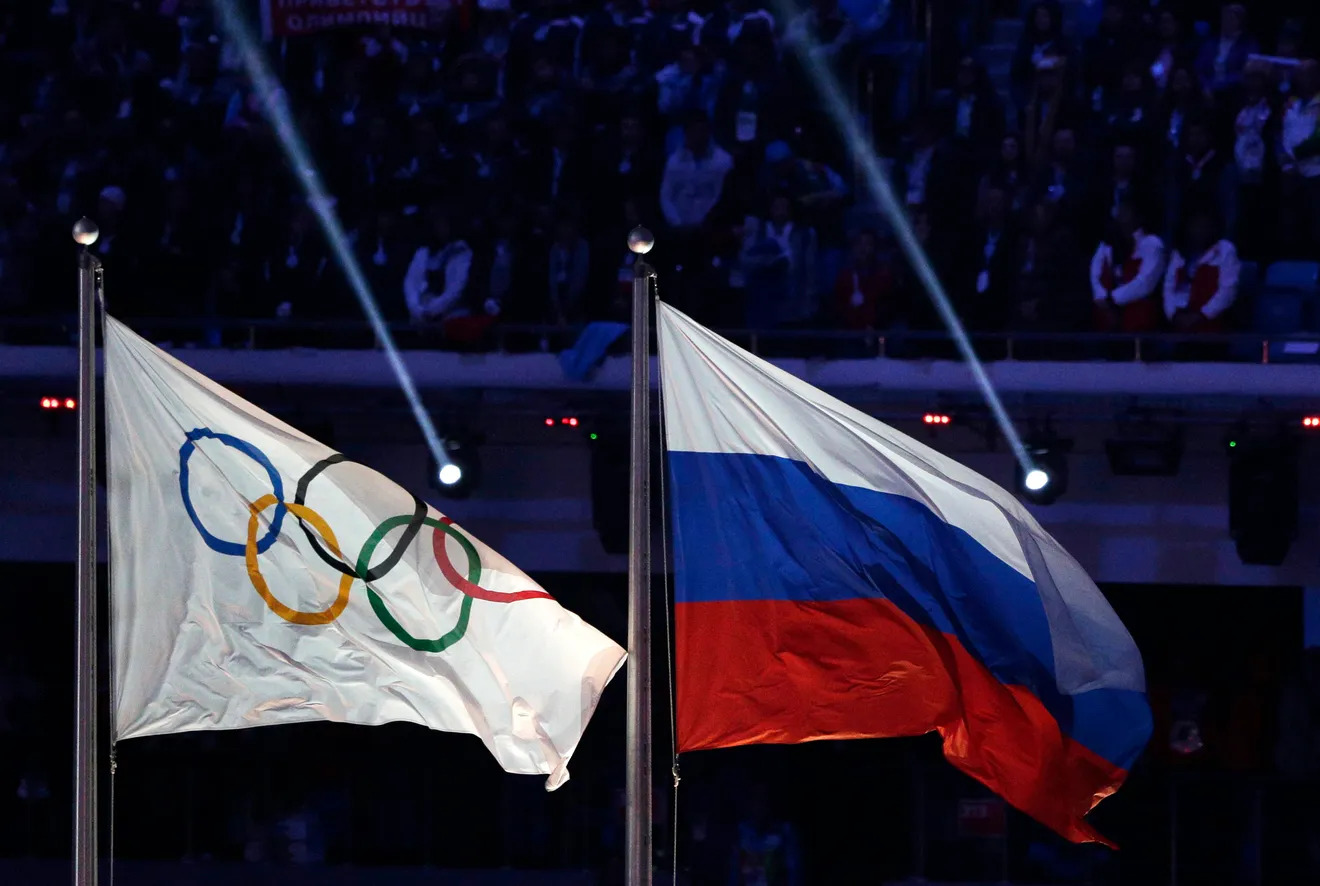
c/o USA Today
On the morning of Monday, Feb. 28, the Executive Board of the International Olympic Committee (IOC) recommended that international sports competitions ban Russian and Belarus athletes from participating. This decision follows the two governments’ involvement in the ongoing conflict in Ukraine.
Russia began their invasion of Ukraine on Thursday, Feb. 24, with explosions near many major Ukrainian cities, and troops moving across the border. This conflict is a part of the ongoing Russo-Ukrainian War that began in 2014 and involved the Russian annexation of Crimea and Donbas, a region that is internationally recognized to be part of Ukraine. Expanded sanctions (sanctions have been in place since the beginning of the war) have been imposed on high-ranking individuals in Russia. Additionally, Russia has been cut off from the Society for Worldwide Interbank Financial Telecommunication (SWIFT), triggering a financial crisis for Russian citizens. Belarus is a strong ally of Russia and began preparing a deployment of soldiers on Feb. 28.
Amnesty International accused Russia of violating laws of war, and said that Russia’s actions in Ukraine could constitute war crimes. Lithuania asked the International Criminal Court in The Hague to investigate the possible war crimes committed by Russia and Belarus.
“The Russian military has shown a blatant disregard for civilian lives by using ballistic missiles and other explosive weapons with wide area effects in densely populated areas,” Agnès Callamard, the Secretary General of Amnesty International, said in a statement.
The IOC appears to be following in the footsteps of other international organizations with their move, but they are not recommending a total ban. This allows organizers of international competitions to decide their own course of action. In fact, the IOC did not even make it clear whether athletes from Belarus and Russia could compete in the Paralympic Games, which begin this week. At least 70 Russian athletes and about a dozen Belarusian athletes are expected to compete at the Paralympic Games in Beijing. Additionally, the IOC recognizes that the short notice of the statement may not allow for it to be implemented for upcoming events.
This statement is a break from the IOC’s typical protocol. Historically, the committee avoids punishing athletes for the decisions of their governments. However, they noted the importance of this decision, as Ukrainian athletes are unable to continue their participation in international competitions because of the invasion.
The IOC’s decision also follows a longtime clash between the organization and Russia over doping bans. Russia was banned from international sports by the World Anti-Doping Agency for four years following the Russian Anti-Doping Agency’s scandal, which involved Russian authorities altering data. The Court for Arbitration of Sport reduced this sentence, requiring Russian athletes to compete with a neutral flag and uniforms. Russian athletes used the name ‘Russian Olympic Committee’ and wore uniforms with the Russian flag colorway. Given that a Russian athlete was caught doping in the 2022 Winter Olympics, that the IOC and other international sports organizations may have been lackluster with the enforcement of restrictions.
Following the announcement from the IOC on Feb. 28, FIFA, the governing body of world soccer, decided to suspend Russia from all future competitions. This decision followed pressure from several countries’ teams, including Poland, France, the United States, and England, who stated that they would refuse to play against Russia in the World Cup. On Friday, Feb. 25, UEFA, the European counterpart of FIFA, moved the location of this year’s Champions League Final from St. Petersburg to Paris.
“Football is fully united here and in full solidarity with all the people affected in Ukraine,” FIFA said in a statement. “Both Presidents hope that the situation in Ukraine will improve significantly and rapidly so that football can again be a vector for unity and peace amongst people.”
The Russian Football Union expressed its distaste for the ban, labeling it as discriminatory.
“Such actions split the international sports community, which has always adhered to the principles of equality, mutual respect and independence from politics,” the Russian Football Union said.
The steps taken by FIFA and the IOC are representative of what happens when countries disregard equality and mutual respect. Independence from politics is not always a good thing. Staying neutral during a conflict can have grave consequences. Even if it may seem like the actions made by the IOC and FIFA are small and bear no weight on the actual conflict, they send a message (albeit one that could be stronger) to Russia and Belarus that international organizations of all types will not stand for violations of international law or for countries that disregard the sovereignty of other nations.
Cameron Bonnevie can be reached at cbonnevie@wesleyan.edu.